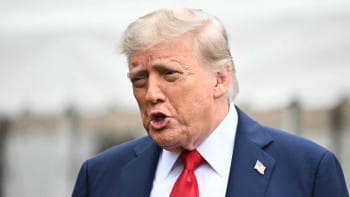Misconception about investing in unit funds
The unit fund is a kind of mutual fund that does not trade in stock exchanges. The journey of unit funds started in the 1980s but it is yet to be popular in Bangladesh. Due to a lack of awareness, many misconceptions prevail in the minds of investors. The big five misconceptions are:
After investment, one needs to find another buyer to sell: This is not true. A unit fund is like a company i.e. formed as a trust. The fund will buy the unit certificates from the investor and transfer the sale proceeds to the investor's bank account. This is a convenient, simple, and continuous transaction.
Share market is very risky, Investors should keep away from unit funds: Unit funds not only invest in shares but also in fixed-income options like government securities, corporate bonds or FDR (fixed-deposit receipts).
Moreover, there are unit funds that do not invest in shares at all in Bangladesh. Those funds invest only in fixed-income instruments and do not bear the risk of the share market. In comparison with equity funds, fixed-income funds are less risky.
If unit funds do not provide cash dividends, they are bad: The total return from the fund is relevant. Cash dividends from the unit funds are taxed but capital gains are not. For example, a unit fund has a total return of 10 percent a year. If it declares a 10 percent dividend, this dividend will be treated as the total taxable income for a person. If the same fund does not declare a dividend and after a period, the same investor sells the whole fund, this will be treated as capital gains. Therefore, it will not be taxed as per the Income Tax Act 2023.
Return will be higher from funds with low net asset value: Investors' total return will be calculated on their total money invested. The number of unit holdings is irrelevant. If the underlying investment of the fund has return-generating potential, the investor will make a profit from the investment.
On the contrary, a fund with a lower NAV might be risky because the underlying investments may not have return generation capacity.
The financial condition of asset manager will determine the return: Unit funds itself are a bankruptcy remote entity. It can work like an artificial person opening a bank account, buying and selling securities under its name. It will also prepare separate financial statements.
The asset manager is just an agent of that fund. When an investor purchases unit certificates, the money directly goes to the fund's bank account, not in the account of the asset manager.
There is a separate board of trustees who are the guardians of the fund and a custodian who safe-keeps all the assets of the fund. Unit funds are governed under the Mutual Fund Rules 2001 of the Bangladesh Securities and Exchange Commission, which is the prime regulator of all funds. If an asset manager takes loans and defaults, the fund assets can't be used to settle the liabilities of the manager. Asset managers' investment skills and securities' performance will determine the return of the fund.
Investing in unit funds is risky. However, if one can diversify well in line with their need and can select a few good funds, they might get returns commensurate to risk.
The authors are chartered financial analysts of Ekush Wealth Management Limited

 For all latest news, follow The Daily Star's Google News channel.
For all latest news, follow The Daily Star's Google News channel. 



Comments